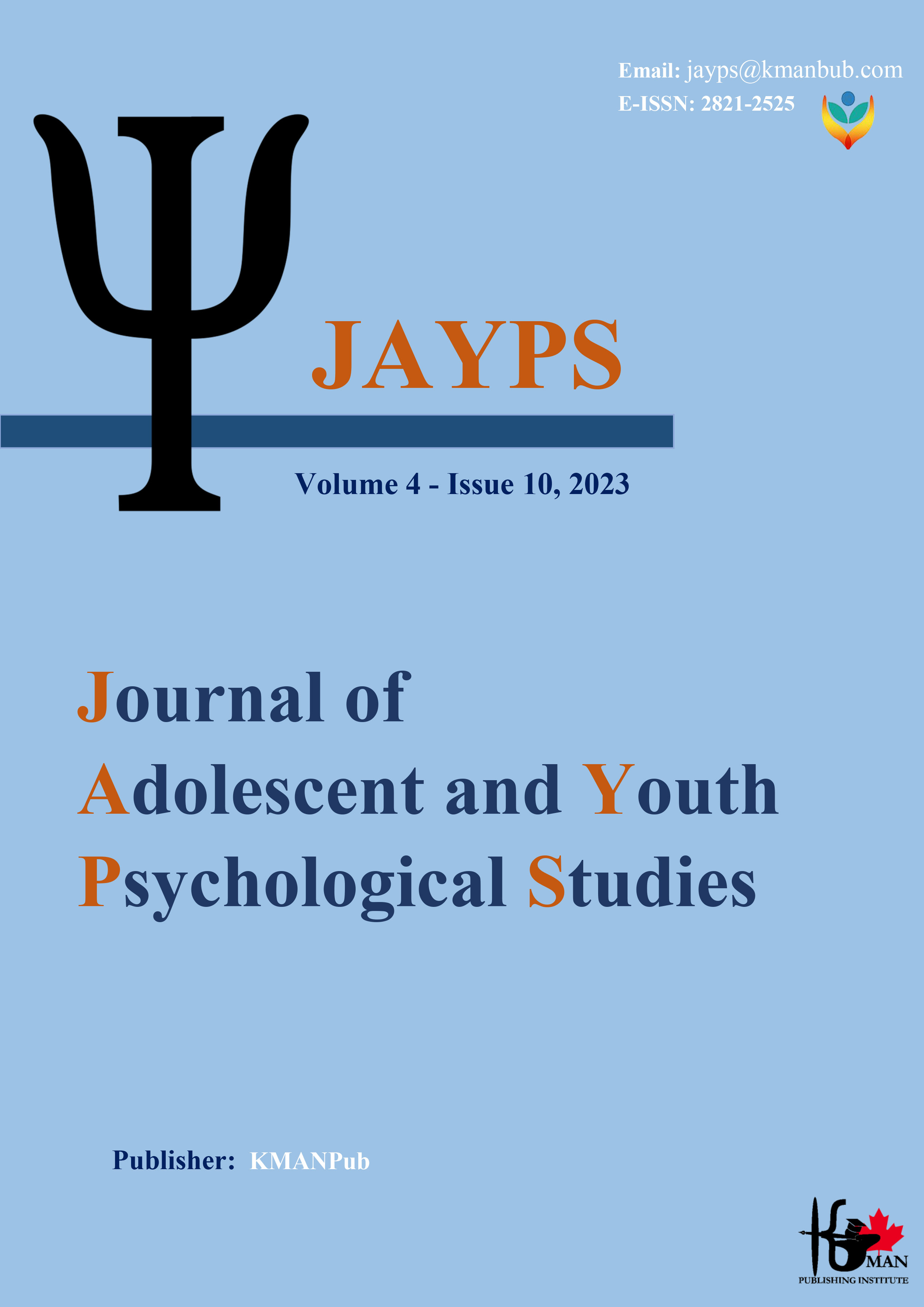The Relationship between Parents' Islamic Lifestyle on the Moral Development and Psychological Well-Being of male Students in the East of Tehran
Keywords:
Islamic lifestyle of parents, moral development, psychological well-being, childrenAbstract
Background and Aim: In the field of education, one of the most important, influential and at the same time, most difficult topics is the moral and ethical development of children. Therefore, dealing with issues related to ethics and, as a result, moral development has a high status. The present study was conducted with the aim of investigating the relationship between parents' Islamic lifestyle and moral development and psychological well-being of male students in the east of Tehran. Methods: The present research method was descriptive-correlation. The statistical population included all male students in the eastern region of Tehran and their parents in 2022. The statistical sample included 250 people and was done by multi-stage cluster random sampling method. The research tools included the Islamic lifestyle test (short form) by Kaviani (2013), the scale of moral development of children, adolescents and young people by Lotfabadi (2010) and the psychological well-being of Ryff (1989). Data were analysed by SPSS and with regression analysis and Pearson correlation methods. Results: The results of Pearson's correlation test and multivariate regression showed that there is a positive and significant correlation between the two variables of parents' Islamic lifestyle with the moral development and psychological well-being of their sons. between the Islamic lifestyle of parents and the components of their child's moral development; Environmental ethics, personal ethics, ethics in family relationships, social ethics and human ethics have not been observed significant correlation. However, there is a positive and meaningful connection and correlation between the Islamic lifestyle of parents and the superior morals of male children; This means that with the increase in the level and level of the Islamic lifestyle of the parents, the level and level of moral excellence in their sons increases and improves. Also, between the parents' Islamic lifestyle and their child's psychological well-being; Positive relationships with others, autonomy or independence, purposeful life and personal growth, no significant correlation was observed. However, there is a positive and significant correlation between the Islamic lifestyle of parents with self-acceptance and mastering the environment of male children. Conclusion: This means that with the increase in the level and level of Islamic lifestyle of parents, the level and level of two components of psychological well-being; Self-acceptance and mastery of the environment increases and improves in their male children.
Downloads
Downloads
Additional Files
Published
Submitted
Revised
Accepted
Issue
Section
License

This work is licensed under a Creative Commons Attribution-NonCommercial 4.0 International License.









